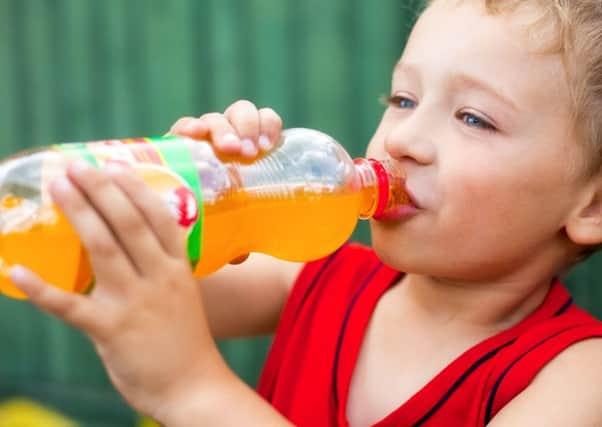Junk food advertising ban aims to tackle childhood obesity


The new rules, announced by the Committee of Advertising Practice (CAP) after a public consultation, will widen existing legislation banning the advertising of high fat, salt or sugar food or drink products on TV to include adverts in print, in the cinema and crucially, online and on social media.
All “TV-like content” online, such as on video-sharing platforms or advergames, if they are directed at or likely to appeal particularly to children, will also be covered by the new ruling.
Advertisement
Hide AdAdvertisement
Hide AdThe regulations will relax existing rules surrounding the use of promotions, licensed characters and celebrities popular with youngsters in any children’s products to allow sellers of healthier alternatives to utilise these techniques.
Currently, food and drink deemed to be unhealthy can be advertised to children in non-broadcast media, unlike television where strict regulation prohibits it through content and scheduling restrictions.
James Best, chairman of CAP, said: “We all know that obesity is a big problem in Scotland. Our expanding waistlines are having a detrimental impact on people’s health and life expectancy, on the NHS budget and the wider economy.
“There is no quick fix. What is needed is a co-ordinated and sustained approach involving parents, schools, the food and soft drink industry and a wide range of public authorities, including public health, regulatory bodies and government.”
The change - which comes weeks after new research from Ofcom showed that young people aged five to fifteen are spending around 15 hours each week online, overtaking time spent watching a TV set for the first time - will apply not only to children’s websites and online TV, but to anything where 25 per cent of the audience is likely to be children.
New Scottish Government figures published earlier this week showed that nearly a third of children in Scotland are at risk of being overweight or obese, while over 250,000 people have Type 2 diabetes.
However, health campaigners warned that the new regulations did not go far enough.
Professor Neena Modi, president of the Royal College of Paediatrics and Child Health, called for all unhealthy foods to be banned from advertising on TV before the 9pm watershed. She said: “This is another positive step forward in the fight to tackle the rising prevalence of overweight and obesity in children, and the damaging health effects of junk food and fizzy drinks.
Advertisement
Hide AdAdvertisement
Hide Ad“With over a fifth of children in the UK overweight or obese when they start primary school and a third by the time they reach year six, surely it is time for Government to strengthen rules around all advertising, and in particular ban the advertising of foods high in salt, sugar and fat on television before the 9pm watershed.”
Jenny Rosborough, campaign manager at Action on Sugar, called for restrictions to be extended to programmes such as X Factor, which are hugely popular with children but exempt from restrictions because they fall outside children’s programming.
She said: “We welcome the news that CAP are banning the advertising of high fat, salt or sugar food or drink products in children’s non-broadcast media. We know that advertising influences children’s food preferences.
“However, we need to see bans on advertising go further, as they currently do not manage exposure to these adverts during popular family programmes such as the X Factor or Britain’s Got Talent.
“Levels of obesity and type 2 diabetes are worryingly high and everyone has a role to play.”
Lorraine Tulloch, Programme Lead of Obesity Action Scotland said “ Children aged five to fifteen can spend up to 15 hours a week online so we are delighted to see steps to protect them from junk food advertising. However, the new proposals only go part way towards tackling the relentless exposure to junk food our children face.
“By including a condition that at least 25 per cent of an audience must consist of children, many popular social media sites and other sources of advertising will not be covered.”
Sarah Toule, head of health information at World Cancer Research Fund, said: “Protecting children from junk food advertising is crucial in helping them create healthy eating habits early in life.”
The new rules will come into effect on 1 July next year.
Advertisers which do not comply are subject to sanctions by the Advertising Standards Authority, which can force companies to remove adverts and names them in its weekly reports.